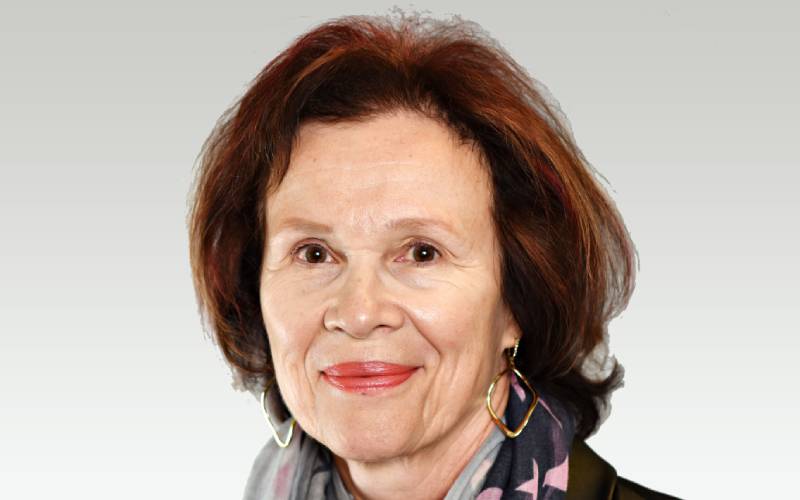“When you think about the analyst’s reverie – we are in a session and something is happening, the patient is telling you something and your mind starts to drift – an image comes to your mind that just sticks and it won’t let go. It may well be that something is happening to the patient that they cannot tell you because they don’t know. But it is stirring up something in you that is resonating and an image will come out of that – something that allows us to find a register, a meaningful register, in which to speak to the patient.”

Marsha Hewitt, PhD
Toronto
Episode Description:
Dr. Harvey Schwartz welcomes Prof. Marsha Hewitt to today’s episode. Professor Hewitt is a psychoanalyst with a private practice in Toronto, Canada. She is also a Professor of Religion in the Department of the Study of Religion at the University of Toronto, Trinity College.
Prof. Hewitt’s books include From Theology to Social Theory: Juan Luis Segundo and the Theology of Liberation, Critical Theory of Religion: A Feminist Analysis. and Freud on Religion (Key Thinkers in the Study of Religion). Her most recent book is called Legacies of the Occult: Psychoanalysis, Religion and Unconscious Communication. Unconscious communication is precisely the subject that is addressed in today’s episode through a discussion about the early history of psychoanalysis and Freud’s relationship to unconscious communication – what he called ‘thought transference’
Prof. Hewitt dives deep into the meaning of being in relation to an analysand, talking about the moments in which an analyst has the experience of daydreaming about something, experiencing a reverie, and moments later, hearing the same thoughts and images from the patient. Dr. Hewitt also emphasizes the importance for analysts to always maintain an open-minded psychoanalytic curiosity about what the meaning of the phenomena happening in the dyad.
Key Takeaways:
[10:33] Dr. Hewitt talks about unconscious communication.
[15:56] What is the meaning of a cult?
[18:38] Telepathy means feeling in the distance.
[20:26] Prof. Hewitt talks about the term bracketing.
[22:04] Prof. Hewitt relates the drift of the unconscious and the job of the analyst.
[24:06] There is an aspect of the transference that cannot be understood.
[27:20] Dr. Schwartz shares a case to exemplify how he experienced reverie with a patient.
[29:30] Prof. Hewitt encourages analysts to keep thinking about what is not understood by sharing a case example.
[32:50] Prof. Hewitt dives deep into the concept of intersubjectivity.
[38:10] Prof. Hewitt continues sharing her efforts in understanding what was not evident.
[39:50] The experience of working with people that have been traumatized.
[43:55] Even in the most flagrant psychosis there is truth.
[45:42] Prof. Hewitt explains where her passion for the unseen and the different forms of subjectivity comes from.
Mentioned in This Episode
IPA Off the Couch – www.ipaoffthecouch.org
Recommended Readings
From Theology to Social Theory: Juan Luis Segundo and the Theology of Liberation, Critical Theory of Religion: A Feminist Analysis, Marsha Hewitt
Freud on Religion (Key Thinkers in the Study of Religion), Marsha Hewitt
Legacies of the Occult: Psychoanalysis, Religion and Unconscious Communication, Marsha Hewitt

I am fascinated by Marsha’s insight into what she is speaking about. It is helping me to understand myself as I put my life’s pieces together. I will read her books because her study and interests (religion, spirituality, and psychoanalysis) align with my experience as a childhood sexual abuse survivor, which I believe set me up for my path into different New Age cults. It has taken me years to leave these groups and actually work through my trauma and unconscious without a group or cult-like worldview.
Her very perceptive awareness regarding the link between trauma and this phenomenon of telepathy and connection to the unseen is a big key of awareness on my journey. Every spiritual leader I followed always had a huge revelatory transition in their life which was often a hugely traumatic experience that brought them to their position as a speaker with followings in the occult and spiritual realms. And also, I would say every one of the people I got close to and knew while involved with those groups had trauma, often horrific traumas, in their past too.
Marsha brought these links to workable awareness that go unseen when embedded in cult dynamics and bonding to the group leaders and their unseen connections. Marsha’s psychoanalytic and frankly grounded views are incredibly valuable to me.
Thank you for this wonderful podcast with her.
This episode of the podcast really had tremendous impact for me. The suggestion of exploring imagery and its symbolism of the ‘unconscious drift’ (oftentimes experienced by both the analyst and the analysand) reminded me of some truly extraordinarily important diagrams offered by the C.G. Jung’s Institute of Chicago through their Jungianthology Podcast as follows:
1. https://jungchicago.org/audio/diagrams/Diagram-317-Beebe-Type.png
2. https://i2.wp.com/frithluton.com/wp-content/uploads/2011/11/Diagram-WH.png
I was intrigued about the experiences in this episode in analysis that were explained — but cannot be explained. If we were to imagine an unconscious life of a patient (and analyst), which Freud discovered, what would it mean to talk about an unconscious unconscious? What would be discovered at a depth level beyond an unconscious mind?
Thanks for this wonderful and inspiring talk! This podcast is an inspiration!!!!!!